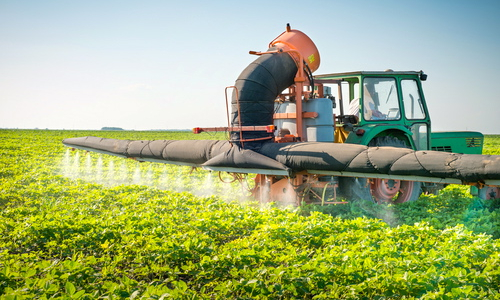



Article by: Hari Yellina (Orchard Tech)
Pesticides are either restricted or unclassified. Restricted means it can cause harm to humans or the environment and unclassified refers to all other pesticides. Pesticides are made up of active and inert ingredients. There are certain labelling requirements for the commercial distribution of products that used agricultural pesticides. The active ones are those which do the damage to the pest, federal law mandates that these ingredients be clearly labelled on the packaging. Inert ingredients are not required to be labelled as they do not cause harm, they are usually present as a solvent in the solution. All pesticides must be registered with the EPA before they can be sold or distributed. There are many tests and requirements concerning the potential effects of pesticides in order to be approved.
Pesticides can be incredibly beneficial and have most certainly increased food production. They were of great importance in saving the United States’ potato crops during the 1940s from insect and fungal pests, as well as controlling the boll weevil in El Salvador in 1953. Yet many times their detrimental effects outweigh the positive ones. Pesticides can be extremely hazardous to the human body and other living organisms, as they are designed to be a poison.
Pesticides became common after the Second World War as part of the war effort was scientific research into a way to end hunger, i.e. pesticides and the increased productivity and availability of food production with their help. Currently, an estimated 3.2 million tons of pesticides are used each year.
Pesticides are wasted in environments where the farmer has little knowledge or care for the detrimental effects of pesticides. Without regulations and enforcement, these pesticides can easily be spread farther than their intended area. This is especially common in developing countries. With a misuse, the pesticides can easily be picked up by the rainwater and washed into the streams as runoff.
Pesticides can enter the human body through inhalation, ingestion, or dermal penetration through the skin. Those who work with agricultural pesticides are the most at risk if they are not properly dressed or if there are broken and leaking equipment. The majority of average citizens who are affected by the pesticides intake the pesticide through consumption of food that was been contaminated with a pesticide. In 2004, carbofuran pesticide residues found on several batches of noodles manufactured in Nigeria may have resulted in 23 reported cases of vomiting and one death.
Pesticides cause headaches, blurred vision, vomiting, abdominal pain, suppress the immune system, lead to blood and liver diseases, depression, asthma, and nerve damage. The issue with these effects is that they may wait to appear until a while after being ingested so tracing the symptoms back to the pesticide can prove to be quite difficult. Many of the symptoms can be mistaken for the flu and therefore not properly treated. Inactive ingredients such as chloroform can also cause serious risks to the liver and nervous system. These effects can also be experienced by the animals living around the streams where the pesticides accumulate. The pesticides bioaccumulate within the animals as they are not easily soluble, as that animal is eaten by another animal the pesticide then biomagnifies and obtains an even higher concentration as it moves further up the food chain.